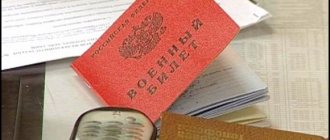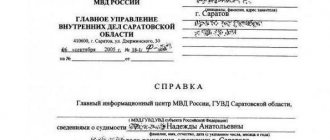A conviction has a number of consequences that are not limited to imprisonment, a fine or correctional labor. A person who has been convicted does not immediately fully enjoy all constitutional rights, even after serving his sentence. As a rule, restrictions are canceled automatically after the expiration of a certain period, but early expungement of a criminal record (hereinafter abbreviated as DSS) is also possible. How to carry out this procedure will be discussed in this article.
Criminal record: concept and legislative regulation
A convicted person is a person in respect of whom there is an act of finding him guilty of committing a crime. If the convicted person has served his sentence, this does not mean a complete abolition of his unfavorable social status. The consequences of a socially dangerous offense continue for some time even after release or payment of a fine.
The regulation of this provision and the procedure for its premature cancellation are carried out in accordance with Art. 86 Criminal Code, Art. 400 of the Criminal Procedure Code. In addition, a number of legislative sources establish special restrictions on the exercise of certain rights by convicted subjects. For example, such citizens cannot adopt or take custody of a child, run for public office, obtain a gun permit, or become a police officer.
Important! As a general rule, a person must serve the established punishment and wait the period prescribed by law in order to be considered such that he has not been brought to justice in the past. If a subject with an outstanding or unexpunged criminal record was again convicted of a punishable act, such behavior will be regarded as a relapse and will serve as an aggravating circumstance.
Answers from lawyers (23)
Greetings again, Sergey. As I already indicated earlier, questions about the abolition of a suspended sentence in accordance with Article 74 of the Criminal Code of the Russian Federation are resolved in accordance with Part 4 of Art. 396 of the Code of Criminal Procedure of the Russian Federation by the court at the place of residence of the convicted person.
According to Part 1 of Art. 74 of the Criminal Code of the Russian Federation
If, before the expiration of the probationary period, the conditionally convicted person has proven his correction by his behavior, compensated for the damage (in whole or in part) caused by the crime in the amount determined by the court decision, the court, on the proposal of the body exercising control over the behavior of the conditionally convicted person, may decide to cancel the conditional sentence and on the removal of a convicted person's criminal record. In this case, the suspended sentence may be revoked after the expiration of at least half of the established probationary period.
Based on this norm, as well as in accordance with clause 5, part 1, art. 399 of the Code of Criminal Procedure of the Russian Federation, early revocation of a suspended sentence is carried out upon the proposal of the institution executing the sentence.
Duration of restricted position
According to Art. 86 of the Criminal Code, a special legal status is assigned to the criminal from the date when the court verdict entered into legal force. This situation lasts for the entire period of direct implementation of criminal sanctions, and even for some time after serving the sentence.
The duration of the restrictions depends on the severity of the offense committed. For example, a serious crime entails more severe sanctions, which means additional control from the law enforcement system will last longer.
There are two ways to get rid of a criminal record - wait for it to be canceled or remove it early. In the first case, repayment occurs automatically, you just need to wait a certain time. No active action is required from the person concerned in such circumstances, except, of course, to comply with the law and refrain from further unlawful actions. In the second situation, the convicted person will have to independently petition the court to apply the DSS, proving the validity of applying this legal mechanism to him.
Expanding the concept
A criminal record is explained as a punishment for an unlawful act that caused material or physical damage and more severe consequences. A criminal record is a legal restriction of a person, as well as a restriction or deprivation of his freedom for a period specified by law. A person to whom a criminal record has been applied is called a convicted person.
The Criminal Code of the Russian Federation describes the concept of a criminal record in Article 86, according to which a criminal record remains with a convicted person longer than the period of serving the sentence. At the same time, during an unexpired criminal record, a person can be monitored and controlled. In case of an offense committed by a convicted person during this period, his punishment may be increased and extended.
Automatic repayment
The law establishes clear deadlines after which the subject is considered to have not been brought to criminal liability. With a suspended sentence, all negative consequences cease after the end of the probationary period.
In other cases, the moment of repayment depends on the nature of the punishment fixed by the court decision:
- when applying measures that do not involve deprivation of liberty, the status is canceled after 12 months after serving or fulfilling the assigned sanctions;
- when imprisoned for misdemeanors of minor or moderate gravity - after 3 years;
- for crimes that are classified as grave or especially grave - after 8 and 10 years from the date of release, respectively.
Important! A person who is found guilty, but at the same time released from punishment, is considered not to have been convicted.
What is the procedure for early repayment of a suspended conviction?
Dear experts, I was convicted on October 13 last year, Art. 228 h1 for a year suspended with a probationary period of 2 years. Khamovnichesky Court of Moscow. Well, I am obliged not to violate the common law. order and do not change permanent residence without notifying the FSIN.
50% of the probationary period will soon expire and I am puzzled by the issue of early withdrawal of the rest. As the FSIN inspector told me, this is done through the court.
The only thing I have found out so far is that I need to contact the council at my place of residence; by the way, I moved, but to a different area of Moscow. How, where, with what to go is not clear to me. I already almost flew out of work while I was running around the cops to stupidly take prints (8 times).
I would like an explanation of what and how. Perhaps I’ll hire a lawyer if anyone is competent in these matters.
I will answer all questions)
Early cancellation
DSS is an accelerated reversal of the adverse consequences that occur for the criminal after confirmation of his guilt. The legislator allows a special mechanism for annulment of the legal status of a convicted person, but only subject to a certain procedure. Firstly, the decision on the advisability of premature cancellation is made solely by the court. Secondly, the proceedings do not start automatically; the interested citizen will need to prepare a special petition.
The main condition is that the person who has served the sentence must prove to the court his impeccable behavior and confirm coverage for damage caused by theft, fraud or hooliganism. There is no precise definition in the law that would allow us to say that the applicant’s actions are impeccable. Judicial practice demonstrates that cases of non-involvement in criminal or administrative liability for repeated incidents, employment, admission to educational institutions, etc. are assessed positively.
How to expunge a suspended conviction early
A positive court decision may be influenced by marriage, having a child, finding a permanent job, participating in charitable organizations, etc. Simply put, everything that can have a positive impact on the character is taken into account. Any person who has served his sentence, regardless of the degree of the crime, has the right to apply to have his criminal record expunged early. Expunging a criminal record early is not the responsibility of the court. Therefore, the person who has served his sentence and his defense attorney must prove their right to such a privilege. The expungement of a criminal record prematurely terminates the legal consequences that have arisen from the moment the preventive measure is determined (except for cases provided for by law). What to do if the court refuses? The convicted person has the right to submit a repeated petition no earlier than one year after the decision was made.
Features of DSS for conditional punishment
With a suspended sentence, accelerated removal of legal restrictions is allowed if the subject has not committed repeated illegal actions. Conditional measures are assigned in accordance with Art. 73 of the Criminal Code. In this situation, the judge comes to the conclusion that the offender can reform without mandatory isolation in places specially designed for this.
In fact, the real sanction provided for in the article of the Criminal Code is replaced by a probationary period. During this period, the convicted person has a number of additional responsibilities, for example, to regularly report to the penitentiary inspection, not to change the address of residence without prior notification of the inspector, and not to travel abroad. In addition, the defendant has the right to be required to get a job, undergo treatment for alcohol or drug addiction, and complete his studies.
If a citizen ignores the rules, he risks being subject to real punishment, for example, ending up in prison. Subject to legal procedure, a criminal record is automatically removed immediately after successful completion of the test. But if the subject has expressed a desire to regain his rights ahead of schedule, he must first obtain the approval of the Inspectorate. Inspectorate staff must review the request and decide whether to make a submission to the judge.
Question:
What are the features of restoring rights upon parole?
Answer:
With parole, the period of time required to expunge a criminal record begins to count from the date of actual release.
How to expunge a criminal record through court
An essential condition for considering a request to remove a criminal record early is the mandatory presence of the convicted person in court. Without his participation, the case cannot be considered.
The expungement of a criminal record during a suspended sentence requires the mandatory participation of representatives of the Criminal Enforcement Inspectorate in the case. The prosecutor may also be involved in the case.
Positive consideration of a request to expunge a criminal record implies the cancellation of all consequences for the person convicted of committing a crime. After the court decision enters into force, the criminal record will be considered removed, accordingly, the person will be considered not to have been convicted, and the obligation to appear at the correctional institution will also cease.
If the court refuses to satisfy the petition to expunge the criminal record, this does not deprive the convicted person of submitting the petition again. Again, the question of how to remove a suspended conviction may be raised before the court and the Criminal Enforcement Inspectorate no earlier than in a year.
As a rule, the removal and termination of a criminal record raises many questions both among the convicted themselves and their relatives. The lawyers on our site will help you understand all the nuances of criminal and criminal procedural legislation. Lawyers and attorneys with extensive experience in cases of this category will provide services such as:
- consultation and clarification on issues of criminal law and procedure;
- assistance in drawing up a petition to expunge a criminal record;
- collecting evidence and documents to attach to the application;
- assistance in preparing for court hearings.
Hiring the services of a lawyer and drafting all documents correctly makes it possible to quickly expunge a criminal record. In addition, on our website you can get legal advice free of charge and online.
Early expungement of a criminal record is quite possible; the advice and assistance of a competent lawyer will help to quickly consider the case.
Step-by-step instructions for preparing an appeal
If a citizen decides to get rid of the restrictions applied to him prematurely, he must act gradually. The law in this situation requires separate legal proceedings, as well as compliance with a number of other conditions. Therefore, the most important point before directly filing an application is preliminary preparation.
Preparatory stage
An application to the court for early lifting of restrictions should be prepared only after successfully serving the punishment prescribed by the servants of Themis. The applicant must behave impeccably from the moment of release until the day of filing the application, that is, not violate law and order, avoid any conflicts, immoral acts, study or work diligently.
If, as a result of a crime, damage is caused to an individual, organization or state, the culprit must compensate the victims for expenses. Typically, in such cases, a civil claim is filed within the framework of criminal proceedings to recover damages caused by the offender. The entity whose unlawful actions caused the costs is obliged to confirm payment of the declared amounts.
Document collection stage
This stage involves not only drawing up the petition itself, but also collecting the necessary written annexes, various certificates, characteristics, medical reports and other papers to substantiate your position.
You can do the paperwork yourself or entrust the matter to a lawyer. In the latter case, the relationship with the lawyer must be fixed through the drawing up of a special agreement.
Consideration
The consideration of the application for LTA takes place in accordance with Art. 400 Code of Criminal Procedure. First, a person must determine the judicial body whose jurisdiction the particular case relates to. Papers should be submitted to the district authority at the citizen’s place of residence.
The judge reviews the materials and sets a date and time for the hearing. The applicant must be personally present at the hearing, otherwise the case will not proceed. The prosecutor, as well as other persons, may take part in the process if their testimony is necessary to establish significant facts.
Important! If the judge refuses to satisfy the petition, the next similar appeal is allowed no earlier than one year later.
A criminal record is expunged:
- in relation to persons on probation - after the expiration of the probationary period;
- in relation to persons sentenced to more lenient punishments than imprisonment - after one year after serving or executing the sentence;
- in relation to persons sentenced to imprisonment for crimes of minor or medium gravity - after three years after serving the sentence;
- in relation to persons sentenced to imprisonment for serious crimes - after six years after serving the sentence;
- in relation to persons convicted of especially serious crimes - after eight years after serving the sentence.
If the convicted person, in accordance with the procedure established by law, was released early from serving the sentence or the unserved part of the sentence was replaced by a more lenient punishment, then the period for expunging the criminal record is calculated based on the actually served term of the sentence from the moment of release from serving the main and additional types of punishment.
If the convicted person behaved impeccably after serving his sentence, then, at his request, the court may remove his criminal record before the expiration of the criminal record.
Expungement or expungement of a criminal record cancels all legal consequences associated with a criminal record.
The application must be accompanied by a maximum of documents indicating that from the time of release from prison until the filing of the application, the person has positive characteristics. They can be obtained from places of work, from places of residence (departmental health departments, from neighbors, from a local police officer, etc.). When considering the petition, you can ask for neighbors, a local police officer, or an employer to be summoned to the court hearing.
It is a good idea to indicate how the rights of a person released from serving a sentence are limited for normal life activities (employment, etc.) by having a criminal record, that is, in what ways it interferes.
When applying the rules of Part 1-3 of Article 400 of the Code of Criminal Procedure, it is necessary to take into account the following:
- the issue of expunging a criminal record is resolved in accordance with Article 86 of the Criminal Code of the Russian Federation: - at the written request of a person who has served his sentence; – by the court or magistrate at the place of residence of this person, with his mandatory participation. If a person who has served his sentence fails to appear, the court hearing will not be held;
- the prosecutor only has the right to participate in the court hearing: his failure to appear does not prevent the resolution of this issue;
- a decision is made to schedule a court hearing. During the court hearing, a protocol is kept. The issue of expunging a criminal record is resolved by the judge alone.
Analysis of the rules of Parts 4 and 5 of Art. 400 Code of Criminal Procedure shows that:
- The judge must hear the explanations of the person who filed a petition to have his criminal record expunged. Explanations are given orally and recorded in the minutes of the court session. Written materials submitted by this person are attached to the latter;
- after this, the judge examines the presented materials;
- then the prosecutor, if he is participating in the court session, and other persons invited to the court session are heard. Their speeches are reflected in the minutes of the court session;
- The court has the right to refuse to satisfy a request to expunge a criminal record. In this case, in his decision he must indicate the reasons for making such a decision;
- if the court refused to expunge the criminal record, then the petition for this can be submitted again: - before the court that refused to satisfy the petition; – only one year after the date of the refusal decision.
- District (city), city district commissions for minors' affairs have the right to enter the court (to the magistrate) with requests for early expungement of a criminal record (Article 14 of the Regulations on commissions for minors' affairs).
- If, after at least half of the established probationary period, the convicted serviceman has proven his correction, the command of the military unit may petition the court to revoke the suspended sentence and expunge his criminal record.
- For a convicted person who has proven his correction by exemplary behavior before the expiration of the probationary period, the judge of the district court, as well as the magistrate in cases within the jurisdiction of the magistrate, may revoke the conditional sentence and remove his criminal record after the expiration of at least half of the established probationary period.
- the judge, having established that the convicted person, who was denied by the court to expunge his criminal record, filed a second petition earlier than the deadline established by Part 5 of the Code, issues a decision to refuse to accept the petition and returns it to the person who has served his sentence.
- The petition for expungement of a criminal record must be accompanied by: copies of the verdict and decision of a higher court, a certificate of the convict serving the main and additional punishments, a description of his place of work and residence, data on compensation for damage caused by the crime. The court has the right to request additional documents.
- the person in respect of whom the issue of expunging a criminal record is being decided bears the burden of proving the grounds for its removal. The evidence establishing these circumstances are usually documents: certified copies of the verdict and, if available, rulings (decisions) of the courts of cassation or supervisory authority, a certificate confirming that the convicted person has served his sentence, copies of orders on incentives, documents confirming compensation for damage caused by the crime, characteristics with places of residence and work. The court may also request additional materials: information about a criminal record, a certificate from the local police commissioner about the behavior of this person at the place of residence. At the same time, Part 4 of this article talks about the possibility of hearing other persons invited to the court hearing, except for the person who filed the petition and the prosecutor. These may be representatives of municipal and housing authorities, public organizations, neighbors, family members, co-workers, etc. The explanations of these persons do not constitute witness testimony, but are entered into the minutes of the court session and are evaluated along with the documents presented when the court makes a decision.
- A petition to expunge a criminal record is considered by a judge alone at a court hearing. When considering an application, the person who filed the application must be given the floor first, then the submitted documents are considered, other invited persons are heard (for example, persons characterizing the behavior of the applicant at his place of work, residence (precinct officer, neighbors, work colleagues or manager, etc. .)), and the opinion of the prosecutor is heard, if he is present. After which the judge makes a decision to grant the petition and remove the criminal record of the person who filed the petition, or to refuse it.
- in case of a positive decision regarding the early expungement of a criminal record, the court sends a copy of the decision to the body that monitors the behavior of convicts.
Early expungement of a criminal record can be done in the shortest possible time, subject to all formalities.
Friends, what do you think about early expungement of a criminal record ? Write a few words about this in the comments and share this information on social networks with your friends. And in order not to miss other important changes in new laws in the future, subscribe to receive news.
RAA Law
Free legal consultation by phone
Required documents
The main document is, of course, the petition. The legislator does not establish a strict form for such a statement; it is only important to adhere to the existing rules for drawing up procedural documentation. The “header” must indicate the full name of the justice authority, the applicant’s full name, his address, and date of birth. Also in the introduction you can write down the details of the verdict, namely the name of the court that made the decision, the date and number of the act. The main part requires:
- briefly describe past events that resulted in a fine, arrest or correctional labor;
- pay attention to the fact of assistance to the investigation, surrender or other facts of positive behavior at the stage of accusation;
- express sincere repentance;
- confirm responsible behavior and reimbursement of costs;
- explain why the early procedure is necessary, for example, the desire to adopt a minor.
You need to attach a copy of your passport and the sentence passed, a certificate of serving the sanction, and a certificate from the Information Center of the Ministry of Internal Affairs. As applications, you can use any papers to substantiate the stated requirements, for example, characteristics from work, institute or university, information about family composition, testimony from neighbors and the local police officer.
Deadlines for filing an application
There is no rule in Russian legislation that would clearly regulate when exactly a person receives the right to apply to initiate a DSS. Theoretically, this can be done at any time convenient for the interested party. However, in practice everything is a little more complicated.
Firstly, delays may arise due to the need to prove impeccable behavior from the point of view of the legislator. It will take at least one month to establish yourself positively. Sometimes finding a job or undergoing treatment for alcohol addiction takes several years. Secondly, it is required to pay for the material and moral damage caused during the crime. This requires money, which is not always available to the convicted person.
Important! There is one more rule that was actually formed by Russian judicial practice. It lies in the fact that the person who has served the sentence imposed by the court must wait at least half of the period established for its expungement before applying for the annulment of his criminal record.
Before the deadline
The process of expunging a criminal record ahead of time is provided for in paragraph five of paragraph 86 of the Criminal Code, which reveals the basic principles of expunging a criminal record. Among the necessary indicators are necessarily exemplary behavior of a person, which is supported by the absence of comments and violations, a permanent place of work and family relationships, especially if children appear in the family, the convict diligently performs his work and has a permanent place of residence, and so on. An important factor on which the decision to remove a criminal record early depends to a large extent is the stability in the life and behavior of the convicted person.
Legal consequences of the decision made by the judge
After considering all the materials provided, the judge may decide to grant the request or deny the citizen. If the applicant is denied, he not only continues to be considered a criminal with all the ensuing consequences, but also loses the right to re-apply for a whole year. This means that the next 12 months will have to focus on eliminating the shortcomings that caused the refusal.
If the decision is positive and the petition is approved, the former offender is declared unconvicted. There is a restoration of limited constitutional freedoms. If the applicant is subsequently detained again for theft or robbery, the offense will be considered as if it was committed for the first time.
However, even with a positive result, it is not possible to talk about the complete restoration of the previous position that the offender had before committing the crime. Data on all incidents are stored in special databases of the Ministry of Internal Affairs indefinitely. Removal from the “black list” is possible only if the information was entered there by mistake or the sentence was canceled due to newly discovered circumstances.
All the most important points about removing and expunging a criminal record: terms and consequences
At the court hearing, it will be necessary to justify that after serving the sentence, the behavior was impeccable and the main goal of the punishment - the correction of the convicted person - was achieved. 6 When considering a petition to expunge a criminal record, the decisive role is often played by materials that indicate the positive characteristics of the convicted person. If you have health problems, certificates from doctors can also help resolve the issue of expunging your criminal record. A full consultation in each specific case can only be provided by a professional lawyer who can legally support a petition to expunge a criminal record in court. 7
If crimes or administrative offenses were committed during the period of an outstanding criminal record, this may have a negative impact on the court decision on the issue of its removal.









